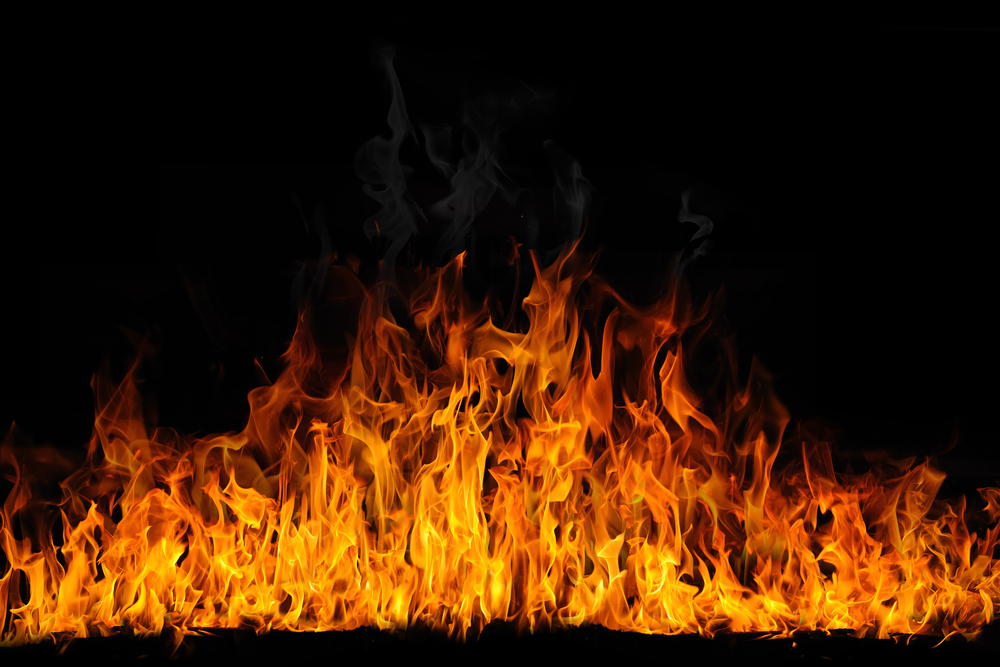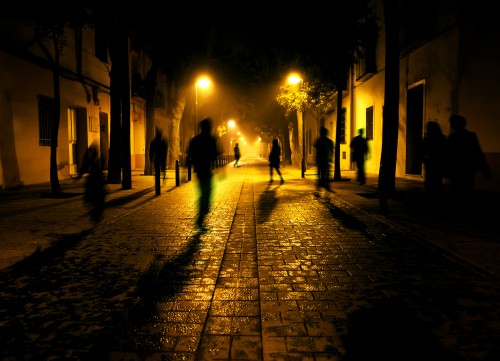The Zohar (Vol. 2, 89b) teaches, “Gehinnom has no control over the world on Shabbos.” This means that Shabbos is a day of peace and rest even for the deceased condemned to suffering in Gehinnom. They, too, are given a respite one day a week, on Shabbos. The Zohar proceeds to discuss the verse, “Do not kindle a fire in any of your residences on the day of Shabbos” (Shemos 35:3). The Gemara (Shabbos 70b) raises the question of why the Torah singles out the prohibition against kindling fire on Shabbos from among all thirty-nine melachos (forbidden activities) of Shabbos. The Zohar answers this question by explaining that the fires we kindle here on earth correspond to the fires of Gehinnom. By refraining from kindling fire on Shabbos, we keep Gehinnom “turned off” and ensure that the souls in Gehinnom are given their weekly respite, and this is the meaning of the Torah’s warning to avoid lighting fires on Shabbos.
Furthermore, the Zohar continues, this pasuk forbids lighting fires on Shabbos afilu b’gufa — “even in one’s body,” referring to anger. When a person gets angry, he kindles the fire of Gehinnom within him. Indeed, the Ramban writes in his famous letter (Iggeres HaRamban) that when a person becomes angry, “all types of Gehinnom control him.” And thus on Shabbos, when we are to refrain from kindling all types of fire, we must also exercise special care to avoid kindling fire through anger. Part of our observance of Shabbos is to avoid becoming upset and angry, and to remain calm and composed.

What might be the reason for this obligation? What does avoiding anger have to do with Shabbos?
Shabbos observance serves to reinforce our emunah, our faith that Hashem controls the world, and a person who becomes angry over something that occurred demonstrates that he regards himself as the one who controls events. Indeed, the Gemara (Shabbos 105b) describes anger as “a foreign deity in a person’s body.” Anger is a type of avodah zarah (idol worship) in that one who grows angry fails to acknowledge G-d’s control over the world.
Let us make an effort to ensure that we do not lose our composure and become upset on Shabbos. Anger in general reflects a serious flaw in one’s middos (character traits) and in one’s emunah, but according to the Zohar, anger also affects the fires of Gehinnom. On Shabbos, we are prohibited to light any sort of fire, including the fire of anger. And thus, just as we would never think to turn on the oven or turn on the ignition of a car on Shabbos, let us also observe the deeper meaning of this prohibition, and ensure not to become angry or upset on Shabbos.

Rabbi Yechiel Spero relates the following story that underscores the importance of avoiding anger. Interestingly, it happened on a Friday night:
The rav of the city of Lemberg was known to be a heilege Yid, a holy Jew. He was a parush, one who abstains from materialism. It was his normal practice to fast the entire week and eat only a bite of food each night.
One time, as he was on his way to shul on Friday evening toward the onset of Shabbos, he felt a tap on his shoulder. When he turned around, he saw one of the simple people of the community standing before him. The fellow asked the rav if he had fasted that day. Before he had a chance to answer the question, the fellow continued, “I know that you fasted today, but I also fasted today.”
The rav thought that the exchange was a bit unusual but continued walking toward shul. However, the man proceeded to escort the rav. A few minutes later, he piped up and asked another question. “How about yesterday? Did you fast yesterday, too?” Once more, before the rav had a chance to respond, the man added, “I also fasted yesterday.”
The rav could not imagine what this fellow wanted, but the man was not finished. “How about the entire week? Did you fast the entire week? Because I also fasted the entire week. There’s only one difference between the rav and me. You are going to sit down at your Shabbos table and eat a delicious meal of challah, fish, soup, and chicken. In this manner, you will revive yourself for the next week. But I am so poor that I just sit down with a piece of bread and salt, and that is how I break my fast.”
The rav did not know what this man’s intent was, but he began to pay closer attention to what he was saying. “But just remember: When you get to your meal and they don’t bring you the fish because the cat ate it, don’t get angry. Because no amount of fasts or self-affliction will compensate for one’s anger.” By now, it was apparent that this simple fellow was not so simple after all. Although the rav was not sure what the fellow meant, he had a premonition that he would find out soon.
Following Maariv that evening, the rav went home and began his Shabbos meal. After he made Kiddush and ate the challah, he waited for his family members to bring out the fish. After waiting longer than usual, he asked the reason for the delay. Someone came in from the kitchen and informed him that a cat had jumped into the house and eaten the fish. He didn’t understand how such a thing had happened and was about to get the tiniest bit upset, but then he remembered what the fellow had told him before Shabbos.
At this point, he realized that the simple fellow was a hidden tzaddik. Immediately, he sent a messenger to the man’s house to ask him to come to his home.

When the messenger arrived at the hidden tzaddik’s home and relayed the message from the rav, the man responded, “There is a rule that if a hidden tzaddik is discovered, then he must die. And therefore, the time has come. What a shame that the rav did not come here himself. Had he come, I would have been able to reveal some of the greatest secrets of the Torah. But now it is too late.”
The messenger ran back to the rav’s home with the hidden tzaddik’s response. Upon hearing what was said, the rav ran to the tzaddik’s home to see if he could still speak to him. But by the time he reached the man’s home, he had already left This World.
The rav informed the chevrah kaddisha of the man’s death and all that had transpired that evening. He then told his family about his conversation with the deceased.
He concluded, “It was worthwhile for the simple man to reveal himself as a tzaddik and then be forced to leave This World before he had to, just to prevent me from getting angry. Because even a trace of anger can cause terrible destruction.”
——-
Reproduced from Living Shabbos by Rabbi David Sutton
ArtScroll / Mesorah Publications Ltd. Reprinted with permission.





